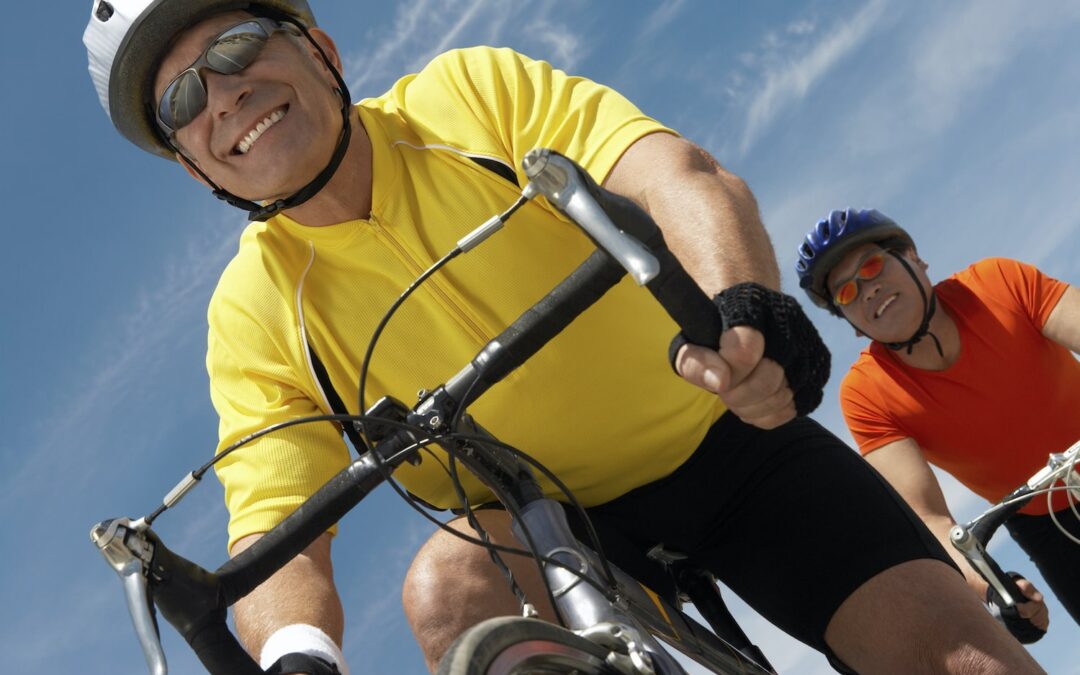Cycling, a popular form of exercise and transportation, offers numerous health benefits, from cardiovascular fitness to mental well-being. However, emerging research suggests that prolonged or intense cycling may have implications for male sexual health. At Versowave, we are committed to promoting holistic approaches to men’s health, recognizing the importance of understanding the potential impact of cycling and bike seats on sexual function. In this article, we explore the intricate relationship between cycling and male sexual health and offer insights into mitigating potential risks while maximizing the benefits of this beloved activity.
The Link Between Cycling and Erectile Dysfunction:
While cycling is widely recognized for its cardiovascular benefits, prolonged pressure on the perineum, the area between the anus and scrotum, may lead to compression of the pudendal nerve and blood vessels. This compression can result in reduced blood flow to the penis, contributing to erectile dysfunction (ED). Studies have shown a correlation between cycling intensity, duration, and saddle design with the prevalence of ED symptoms among male cyclists. Versowave acknowledges the importance of raising awareness about these potential risks and empowering cyclists to make informed choices to protect their sexual health.
Saddle Design and Pressure Distribution:
The design of bike seats plays a crucial role in mitigating the impact of cycling on male sexual health. Traditional bike seats, characterized by narrow, elongated shapes, may exert excessive pressure on the perineum, leading to discomfort and potential nerve compression. Versowave advocates for the use of ergonomic bike seats with wider, more supportive designs, which distribute pressure more evenly across the buttocks and reduce the risk of perineal trauma. By investing in well-designed bike seats, cyclists can minimize the risk of adverse effects on sexual function while enjoying the benefits of cycling.
Positioning and Posture:
In addition to saddle design, cyclists can optimize their riding experience by paying attention to positioning and posture. Proper bike fit and saddle height adjustment can help alleviate pressure on the perineum and promote a more comfortable riding experience. Versowave encourages cyclists to experiment with different saddle positions and handlebar configurations to find the optimal setup that minimizes perineal pressure while maintaining biomechanical efficiency. By prioritizing ergonomic principles in bike fit and posture, cyclists can reduce the risk of sexual health complications associated with cycling.
Pacing and Rest Periods:
Pacing and rest periods also play a crucial role in mitigating the impact of cycling on male sexual health. Prolonged or intense cycling sessions without adequate breaks may exacerbate perineal pressure and increase the risk of nerve compression and vascular compromise. Versowave recommends incorporating regular breaks into cycling routines, allowing for brief periods of rest and circulation restoration. By pacing oneself and listening to the body’s signals, cyclists can reduce the likelihood of adverse effects on sexual function and overall well-being.
Pelvic Floor Strengthening:
In addition to external factors such as saddle design and riding posture, cyclists can take proactive steps to support their pelvic floor health. Pelvic floor exercises, such as Kegels, can help strengthen the muscles that support the pelvic organs and contribute to erectile function. Versowave offers guidance and resources on pelvic floor exercises, empowering cyclists to incorporate these simple yet effective techniques into their routine to promote optimal sexual health. By strengthening the pelvic floor muscles, cyclists can enhance stability and support, reducing the risk of perineal trauma and erectile dysfunction.
Conclusion:
Cycling is a beloved activity enjoyed by millions worldwide, offering numerous health benefits. However, it’s essential to recognize the potential impact of cycling and bike seats on male sexual health. Versowave remains committed to raising awareness about this issue and providing cyclists with the knowledge and resources they need to protect their sexual well-being. By prioritizing ergonomic saddle design, proper positioning and posture, pacing and rest, and pelvic floor strengthening, cyclists can enjoy the physical and mental benefits of cycling while safeguarding their sexual health for the long ride ahead.

